Skin Discoloration
Get the help you need with skin discoloration from the comfort of home with a telehealth visit.
Skin discoloration is one symptom of several dermatology conditions. In some cases, the discoloration may be due to a side effect, infection, allergies, or exposure to irritants. Discolored patches of skin may appear at any time, and when large patches of discoloration occur, it can be alarming. Talk to a board-certified dermatology expert to discuss your skin discoloration symptoms.
Melasma
The medical term for acne is acne vulgaris. In this case, “Vulgaris” comes from the Latin word meaning “common.” Acne lesions form on the surface of the skin in various forms. Normally, acne isn’t very serious, but certain lesions may become seriously infected on rare occasions.
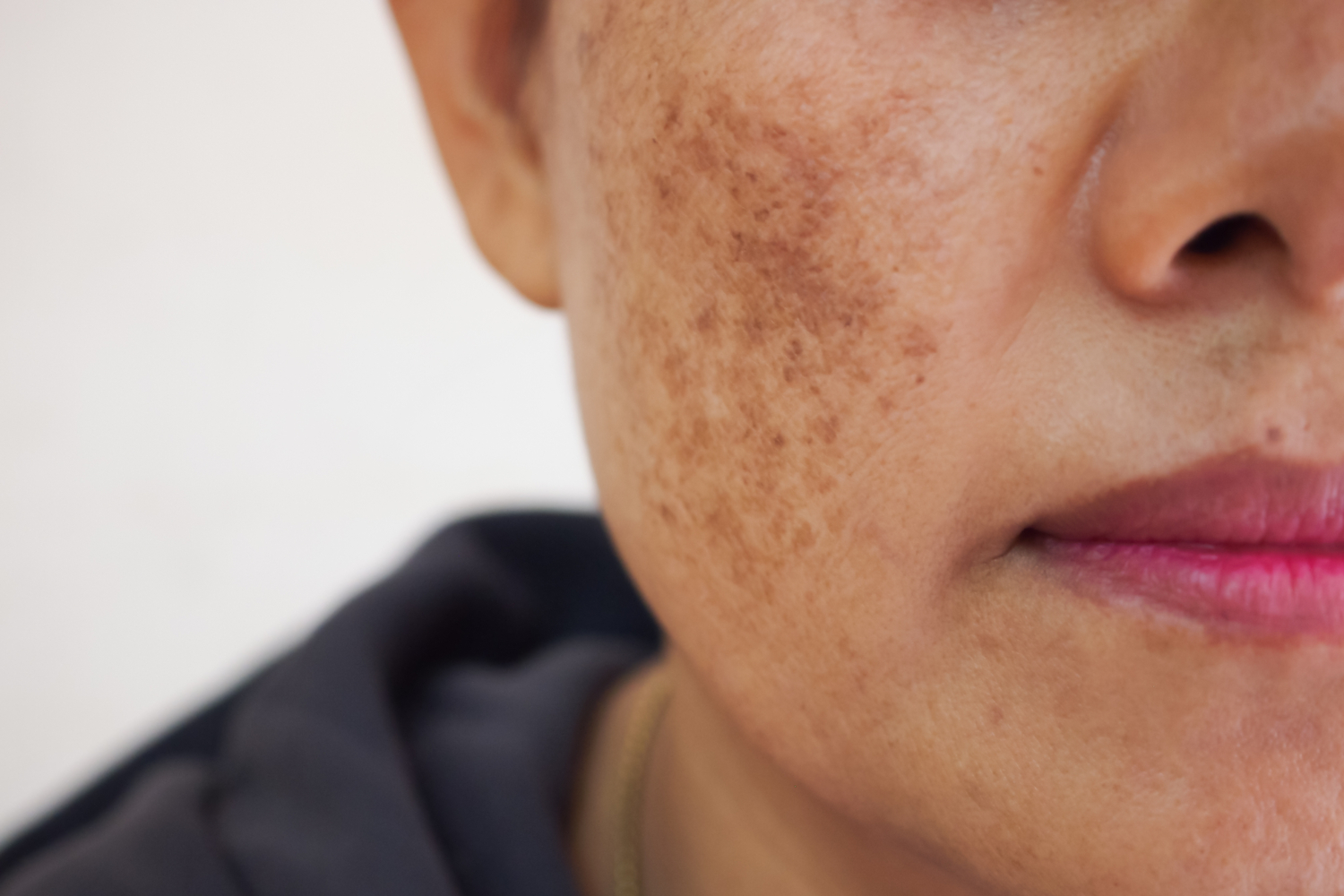
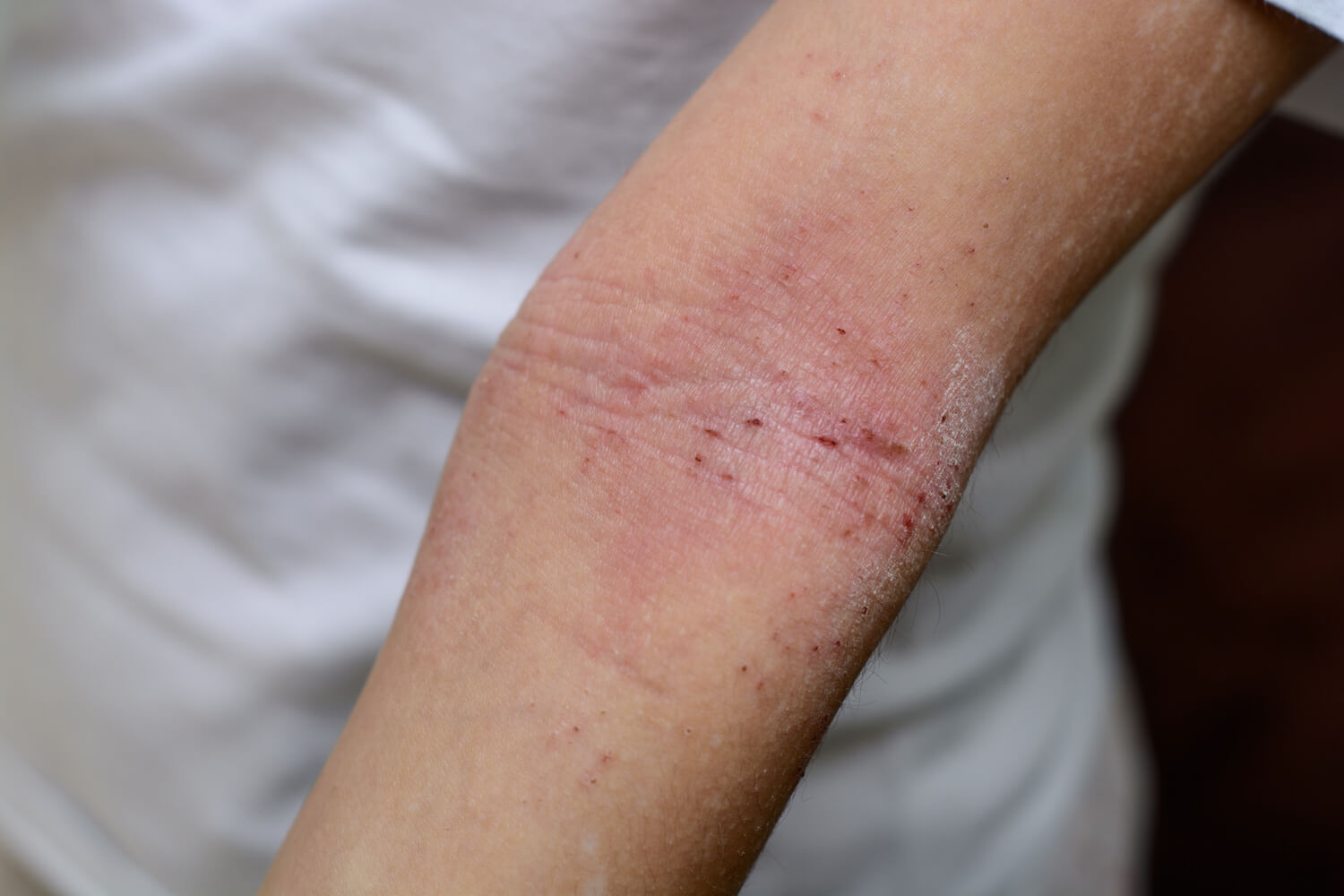
Ezcema
Apart from the itching usually associated with eczema, this condition can cause either darkening or lightening of the skin. If an eczema flare-up causes discoloration, it can take anywhere from a couple of weeks to a year or more for the skin tone to become uniform.
Hyperpigmentation
Any imbalance to melanin in the skin results in hyperpigmentation. Hyperpigmented skin can appear as darker, lighter, or otherwise off-tone from the rest of the surrounding skin. A dermatologist or a certified dermatology provider can prescribe specific medications to help the pigmentation fade.
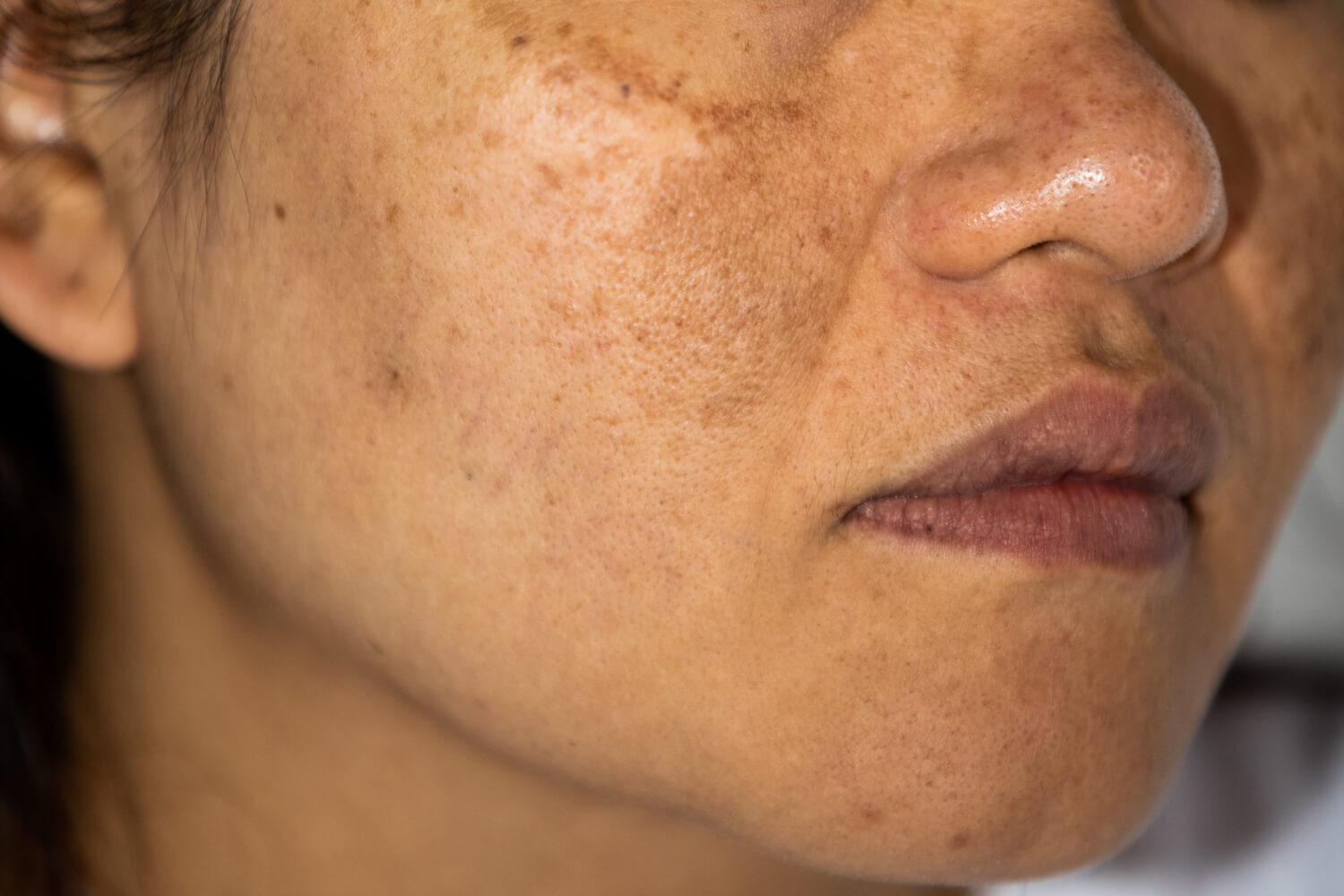
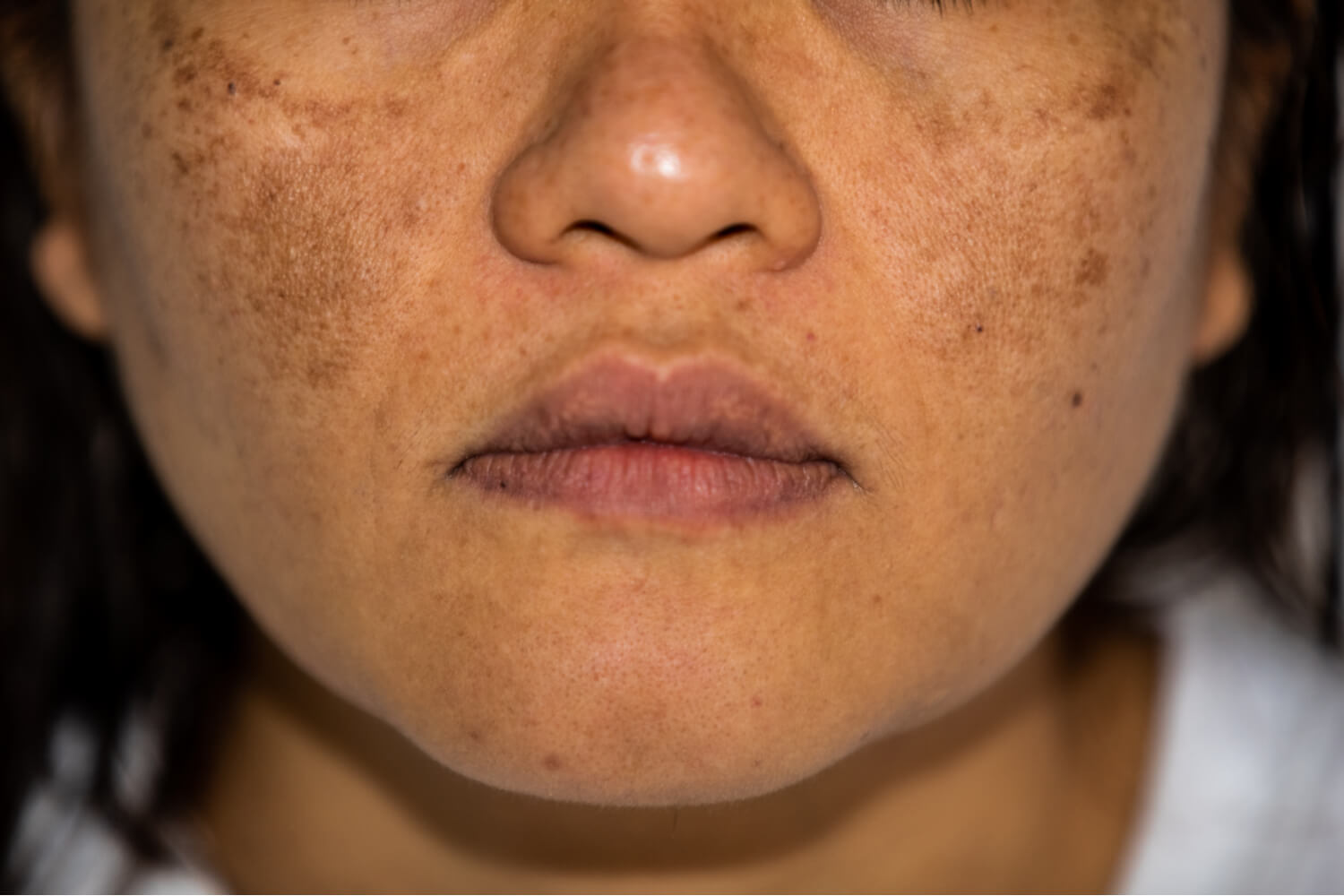
Inflammatory & Post Inflammatory Discoloration
Dermatology conditions like eczema, bug bites, acne Vulgaris, sunburns, psoriasis, and rosacea all cause inflammation in the skin.
Normally, an inflamed area will become pink or red to the touch, as well as feel hotter than the surrounding skin. If an infection is the cause of this discoloration, it will generally face as the infection dies. However, there can still be some discoloration left over if the infection damaged the skin cells or melanin producers.
Chronic Dermatitis
Even though chronic dermatitis conditions like eczema and rosacea have some inflammatory qualities to them, flare-ups take time and protection from irritants to resolve.
Additionally, if your flare-ups become infected, it can further increase your risk for more permanent discoloration.
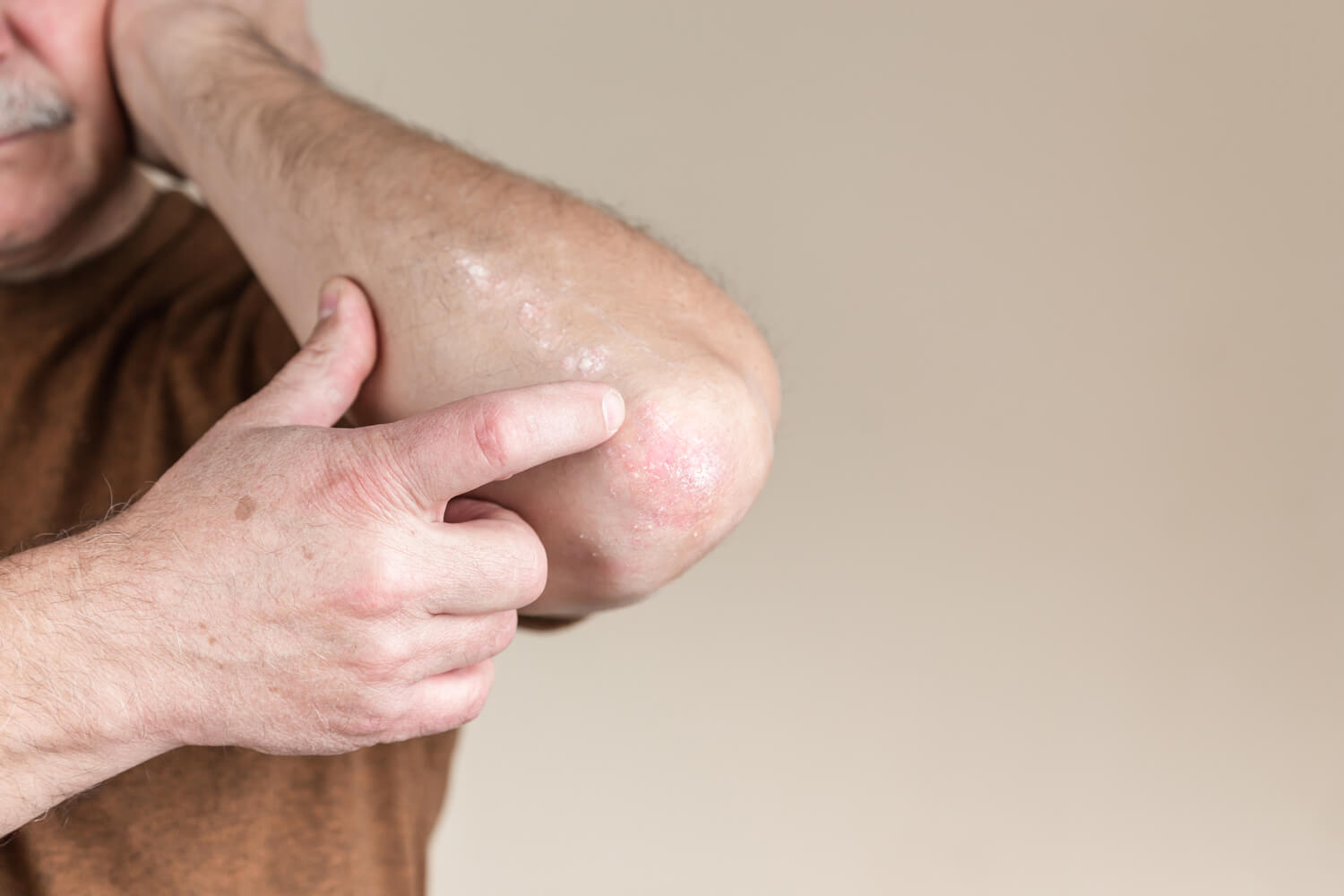
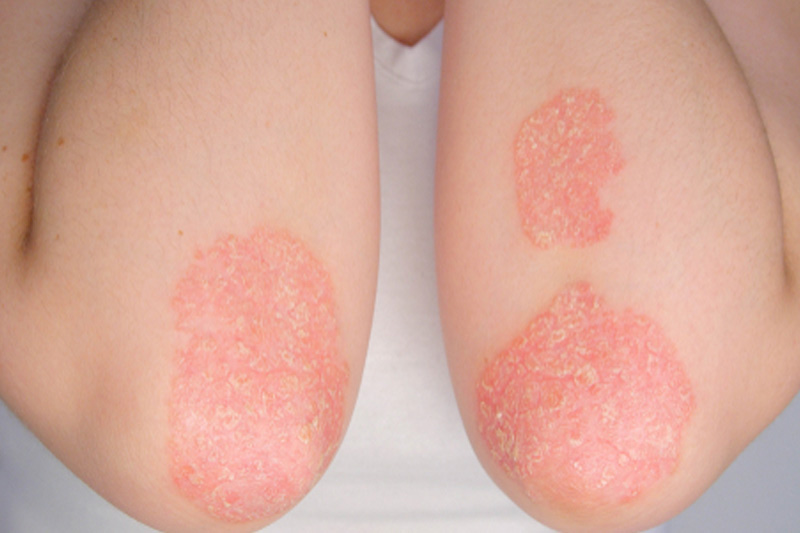
Psoriasis
Vitiligo
Without melanin, the skin will eventually lose it’s naturally accumulated color. People with vitiligo experience paling and pigment loss from their skin. At first, depigmentation is most commonly noticed on the fingertips and at the tips of the toes. It may also be noticed on the face or through the hair. Vitiligo also affects the color of hair.
Anyone of any skin tone or color can develop vitiligo.
Generally, the patches of skin affected by vitiligo will increase with size as time goes on. In a way the disease is progressive, but it is not life-threatening or physically damaging.


Melasma
Also known as chromasma, melasma is a condition that causes dark discolored spots to form on the face, due to overactive melanin production. The dots resemble freckles, and women typically develop melasma after becoming pregnant.
The hormones a mother experiences during pregnancy can affect the melanin-producing glands in her skin, thus leaving her with the discolored melasma.
Contact Dermatitis
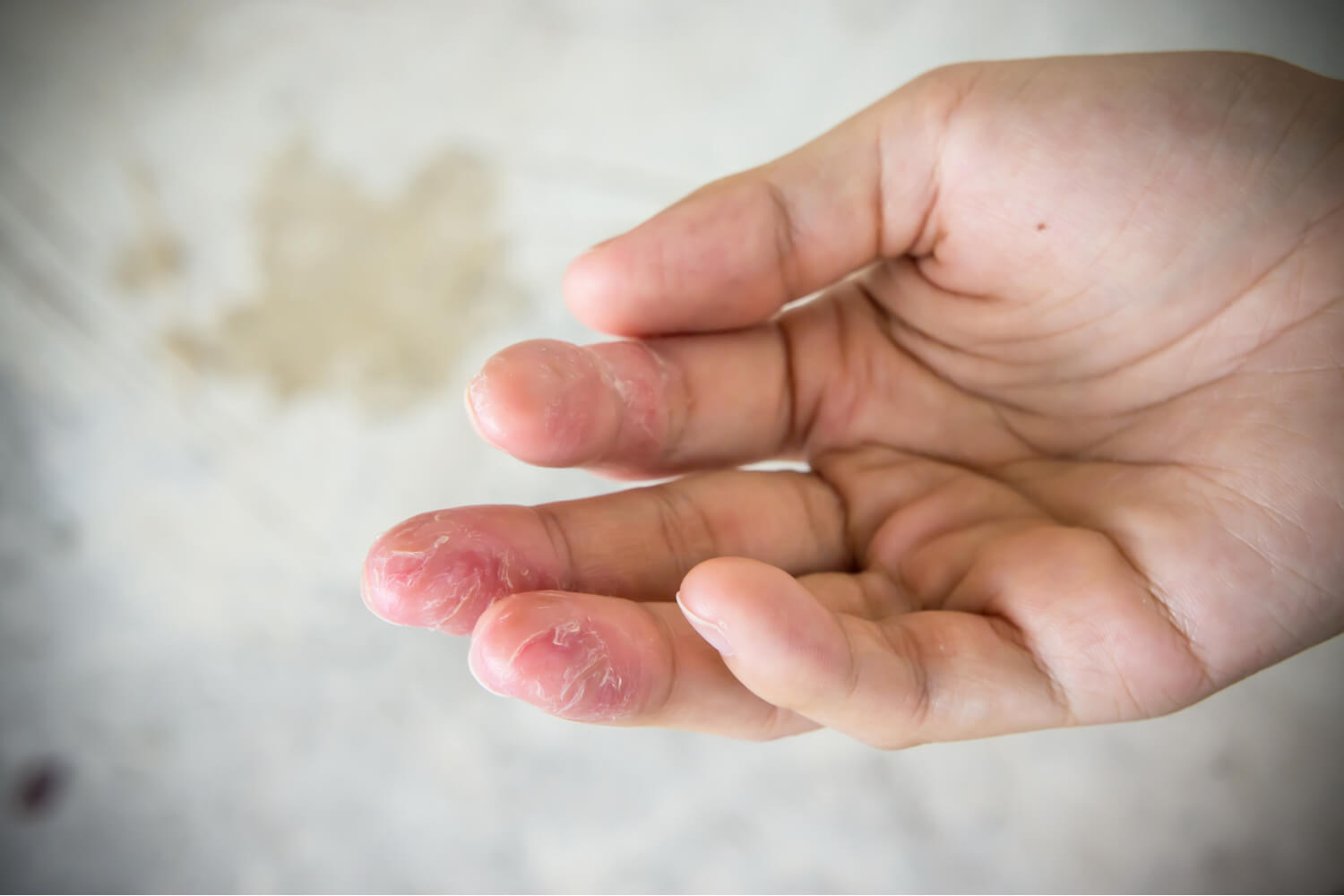
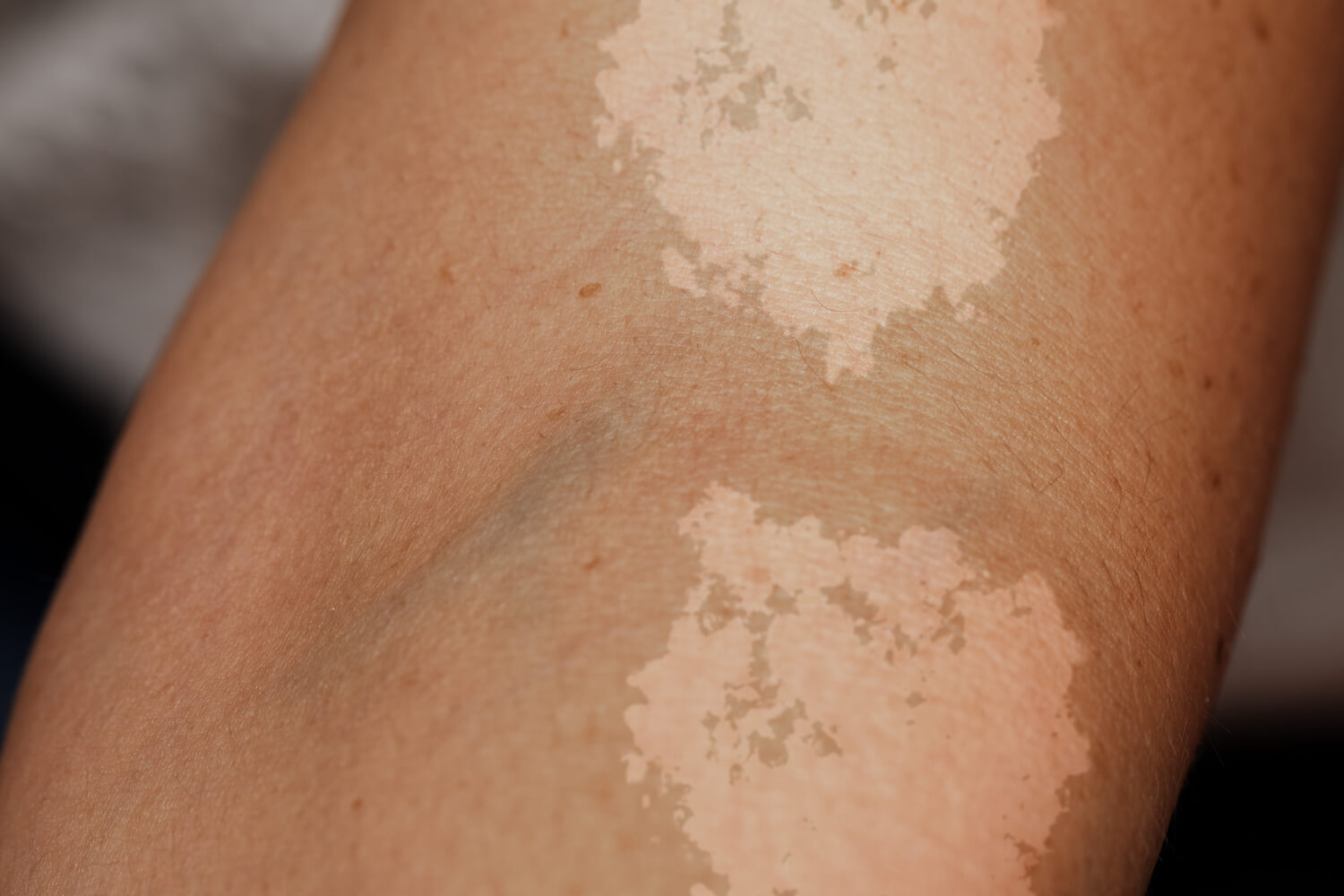
Tinea Versicolor
A type of skin discoloration caused by a fungal infection. The discoloration occurs when the fungus disrupts the function of pigment-producing cells in the skin, causing either lighter or darker spots to appear in the skin.
This condition is easily identifiable and easily treated with antifungal prescription creams or ointments. Once the infection is gone, the discolored patches should resolve after a few months.
Rosacea
This chronic condition causes bright red discoloration through the face. The expanded blood vessels that cause rosacea can make it easier to get flushed. Acne, spider veins, and thickening skin are also related to rosacea.
Treatments are best assessed on an individual basis, but generally soothing medicated creams and antibiotics prove helpful before more intense treatment is needed.
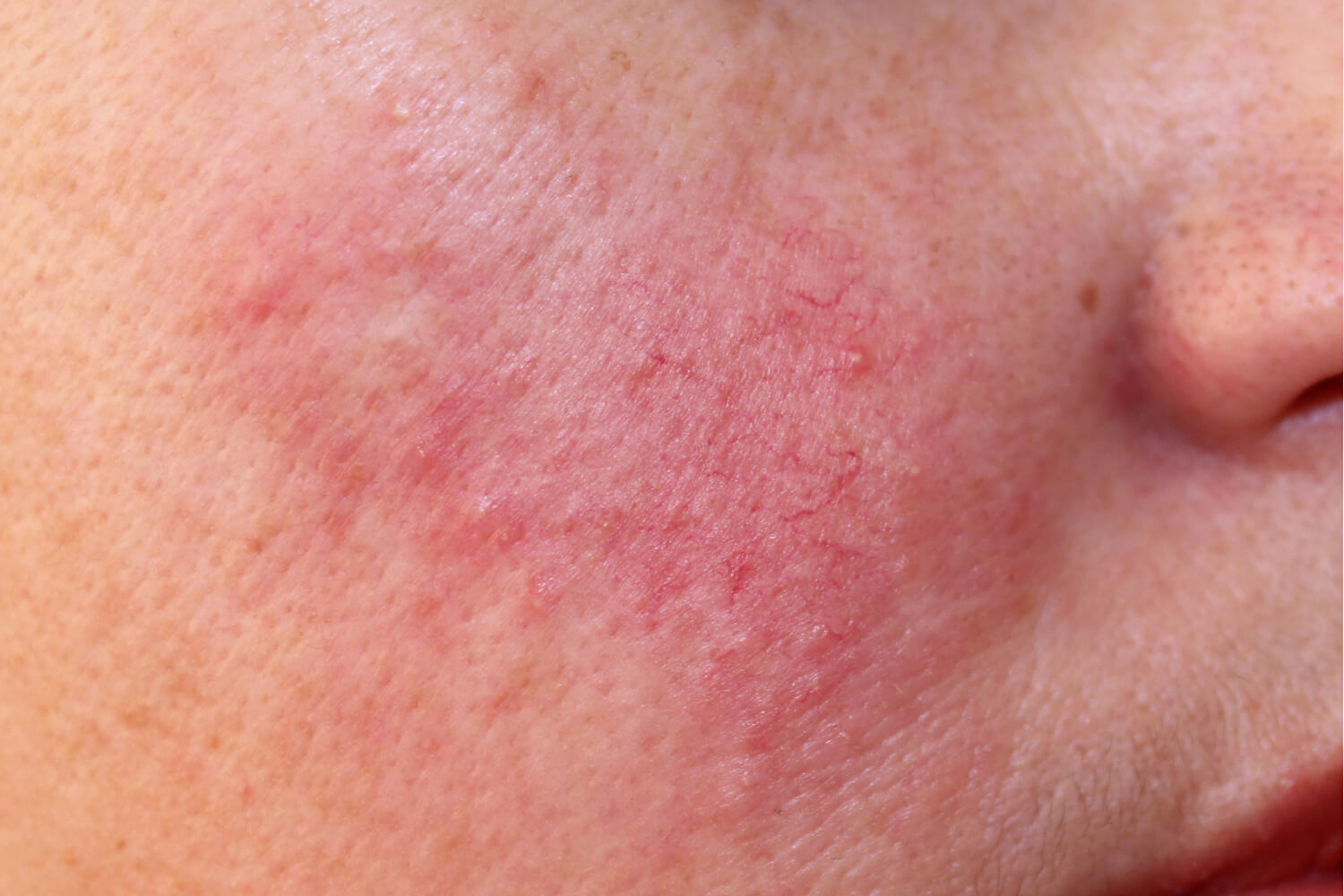
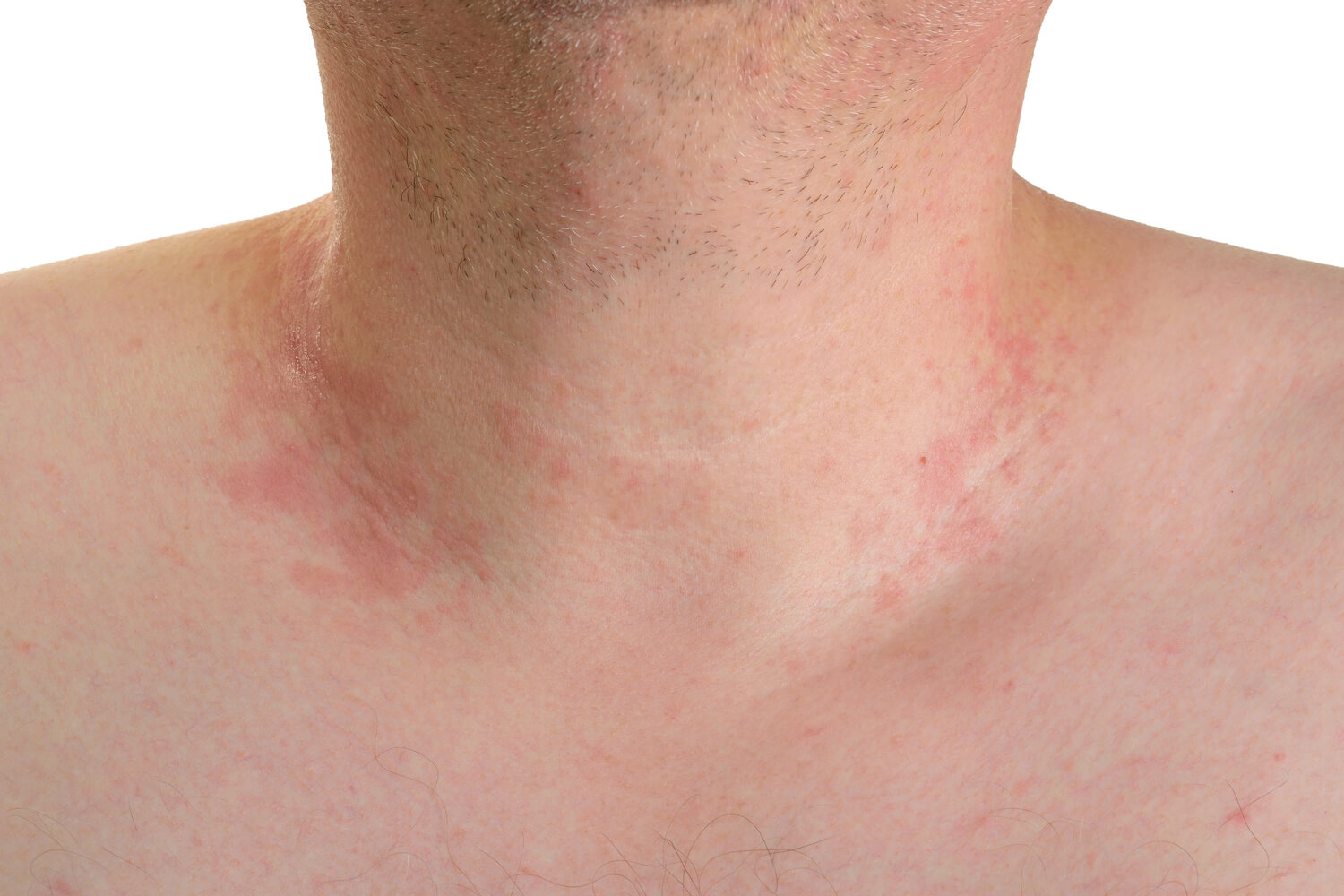
Poikiloderma
Why use Tennessee Telederm?
Virtual Appointments
Your exam is online using telehealth, a HIPAA secure video platform powered by Athenahealth, the largest connected network built to support physician practices.
Experience-Backed Treatment Plans
Treatment plans are backed by years of dermatology and practice experience. Kristen specializes in diagnosing and treating medical conditions of the skin and creates personalized treatment plans for each patient.
Convenience and Affordable
Tennessee Telederm offers a convenient and affordable way to receive dermatology care through online scheduling, telehealth and same-day appointments. We do accept insurance and treat ages 12 and up.
What Our Patients Say
We'd love
to hear
from you
Be In Touch
Office
Nashville, TN 37205
Phone
73 White Bridge Rd., Suite 103
Nashville, TN 37205
Fax
833-305-0498

